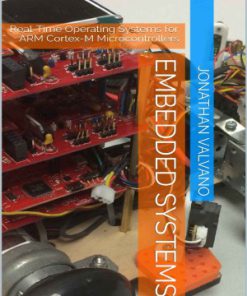Brains as Engines of Association An Operating Principle for Nervous Systems 1st edition by Dale Purves 0190929954 9780190929954
$50.00 Original price was: $50.00.$25.00Current price is: $25.00.
Brains as Engines of Association: An Operating Principle for Nervous Systems 1st edition by Dale Purves – Ebook PDF Instant Download/DeliveryISBN: 0190929954, 9780190929954
Full download Brains as Engines of Association: An Operating Principle for Nervous Systems 1st edition after payment.

Product details:
ISBN-10 : 0190929954
ISBN-13 : 9780190929954
Author: Dale Purves
Brains as Engines of Association tackles a fundamental question in neuroscience: what is the operating principle of the human brain? While a similar question has been asked and answered for virtually every other human organ during the last few centuries, how the brain operates has remained a central challenge in biology. Based on evidence derived from vision, audition, speech and music–much of it based on the author’s own work over the last twenty years–Brains as Engines of Association argues that brains operate wholly on the basis of trial and error experience, encoded in neural circuitry over evolutionary and individual time. This concept of neural function runs counter to current concepts that view the brain as a computing machine, and research programs based on the idea that the only way to answer such questions is by reconstructing the connectivity of brains in their entirety. This view also implies that the best way to understand the details of brain function is to recapitulate their history using artificial neural networks. While this viewpoint has received support in the last few years from work showing that computers can win complex games, the brain plays a much more complex game–the “game” of biological survival–which Purves concludes is based on trial-and-error experience.
Brains as Engines of Association: An Operating Principle for Nervous Systems 1st Table of contents:
1. Putting the Question in Perspective
Introduction
Life on Earth
Defining Life
Energy
Evolution
Mechanisms
Teleology
Conclusion
Suggested Reading
2. Organisms Without Nervous Systems
Introduction
Bacteria
Protists
Plants
The General Strategy
Conclusion
Suggested Reading
3. Organisms With Nervous Systems
Introduction
Defining Nervous Systems
The Emergence of Nervous Systems
The Emergence of Central Nervous Systems
What Do Brains Add?
Conclusion
Suggested Reading
4. The Organization of Nervous Systems
Introduction
Stimuli
Preneural Processing
Neural Processing
Behavioral Output
Neural Systems and Subsystems Are Interactive
Conclusion
Suggested Reading
5. The Problem
Introduction
Vision as an Example
The Basic Challenge
An Answer in General Terms
Qualia Determined by Empirical Ordering
Perceptual Discrepancies
Mechanisms
Other Modalities
Conclusion
Suggested Reading
6. Neural Associations
Introduction
Associations Wrought by Evolution
Associations Wrought by Lifetime Learning
Associations Wrought by Culture
Behavioral Categories of Associations
Reward
Behavioral Responses as Reflexes
What Is Associated?
Counterarguments
Conclusion
Suggested Reading
7. Evidence from Lightness and Color
Introduction
Luminance and Lightness
Analyzing the Occurrence of Luminance Patterns
Effects of Other Luminance Patterns
Spectral Energy and Color
The General Strategy
Conclusion
Suggested Reading
8. Evidence from Geometry
Introduction
Seeing Intervals
Seeing Angles
Seeing Object Sizes in Two Dimensions
Seeing Object Sizes in Three Dimensions
Seeing Stereo Depth
Conclusion
Suggested Reading
9. Evidence from Motion
Introduction
Apparent Motion
The Perception of Speed
Implications for the Perception of Time
The Perception of Direction
Conclusion
Suggested Reading
10. Evidence from Audition
Introduction
Sound Signals
Sources of Tones
Sound Signal Spectra
The Problem in Audition
An Empirical Approach
Evidence from Speech
Evidence from Music
Implications for Any Sensory System
Conclusion
Suggested Reading
11. The Major Options
Introduction
Neural Function as Feature Detection
Neural Function as Statistical Inference
Neural Function as Predictive Coding
Neural Function as Efficient Coding
Neural Function as Computation
Conclusion
Suggested Reading
12. Summing Up
Introduction
Obstacles and a Way Around Them
Empirical Ranking
Winning Games
Biological and Artificial Intelligence
Consequences for Neuroscience
The Status of Reasoning
Novel Situations
Choice
Culture
Frequency of Stimuli
Conclusion
Suggested Reading
Glossary
Bibliography
People also search for Brains as Engines of Association: An Operating Principle for Nervous Systems 1st:
why human brain is intelligent
does a bigger brain mean more intelligence
organizations as brains
brains association areas
brain associations
Tags: Brains as Engines, Association, Operating Principle, Nervous Systems, Dale Purves
You may also like…
Computers - Programming
Computers - Computer Science
Computers - Operating Systems
Computers - Computer Science
Engineering
Universities as Engines of Economic Development: Making Knowledge Exchange Work Edward Crawley
Business & Economics
An Essay on the Principle of Sustainable Population Toshihiko Hara
Uncategorized












